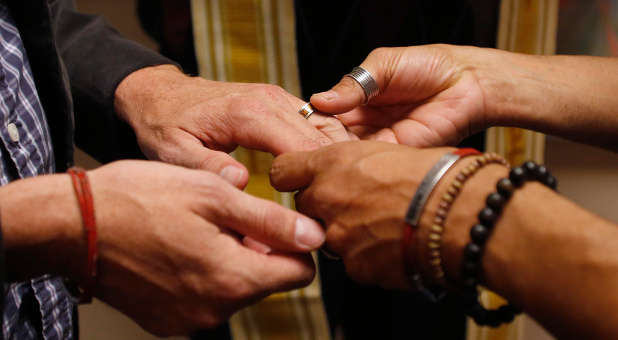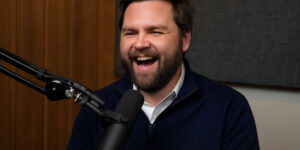Methodist Bishop Gets Free Pass on Same-Sex Marriage
In October 2013, long-retired United Methodist Bishop Melvin Talbert invaded the North Alabama territory of Bishop Debra Wallace-Padgett to perform a same-sex union, disregarding the protests of the latter and the leadership of the denomination’s Council of Bishops. The United Methodist Church’s governing Discipline teaches that sex is only for marriage between one man and one woman, and forbids same-sex union ceremonies.
Active United Methodist bishops then voted overwhelmingly to call for formal complaints to be filed against Talbert by Wallace-Padgett and liberal Bishop Rosemary Wenner of Germany, then the Council of Bishops President.
Yesterday, over a year later, they announced a “just resolution” to protect Talbert from any penalty, while he vaguely agreed “to live according to the Book of Discipline” without clearly apologizing. Other bishops participating in this process included Robert Hoshibata of Phoenix, who had publicly defended Talbert, and Elaine Stanovsky of Denver.
“This result is sad but not surprising. This failure shows our bishops cannot generally be trusted to hold each other accountable. We need to reform our processes to give others that responsibility,” says IRD’s United Methodist Action Director John Lomperis.
He welcomes the resolution’s acknowledging the pain on all sides, but says such professed concern rings hollow when coupled with such a weak, moral equivalency-touting response that will provoke even further conflict and pain.
“The resolution promotes endless ‘dialogue’ without saying a word about Scripture or the great pastoral harm done to the two gay men Talbert showcased for an unbiblical political act,” Lomperis says.
People ordained in the Methodist denomination vow to commit to upholding our denomination’s doctrine and rules, Lomperis says, but a vocally disruptive minority basically chooses to dissemble their way through ordination.
“Future church historians will note how so much of United Methodism’s destructive turmoil today was driven not just by the lack of integrity of radicals like Talbert, but also by other bishops’ failure to stand up to them in a sustained way,” Lomperis says.
“This complaint was handled in the UMC’s radicalized Western Jurisdiction, which covers one-third of the United States but includes less than 3 percent of United Methodists, and is losing members faster than any other region. As San Francisco bishop, Talbert was known for excluding biblically faithful United Methodists in his area from leadership and driving many out of the denomination. He represents our church’s dysfunctional past, not its future.”







































